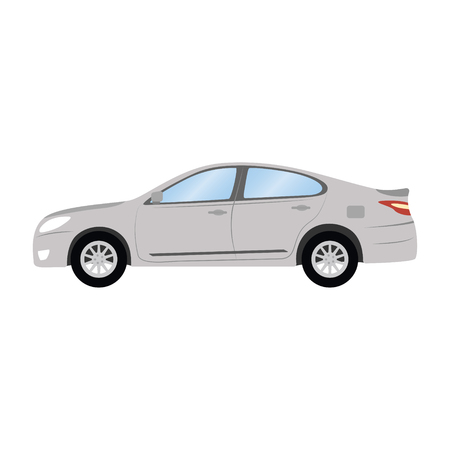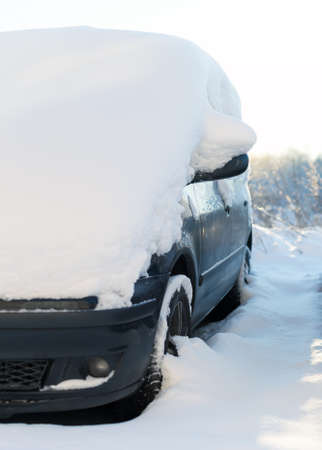1. Introduction
Keeping your car in top shape year-round requires different maintenance approaches depending on the season. Both winter and summer bring unique challenges that can affect your vehicle’s performance, safety, and longevity. Understanding these seasonal differences will help you take better care of your car and avoid unexpected breakdowns.
Why Seasonal Car Maintenance Matters
Extreme temperatures—whether hot or cold—can place significant stress on your vehicle. Proper seasonal maintenance ensures that your car runs smoothly in any weather condition. Neglecting to adjust your maintenance routine based on the season could lead to issues such as poor battery performance in winter or overheating in summer.
How Winter and Summer Conditions Affect Your Car
| Factor | Winter Impact | Summer Impact |
|---|---|---|
| Battery | Cold temperatures reduce battery capacity, making it harder to start your car. | Heat can cause battery fluid to evaporate, leading to battery failure. |
| Tires | Cold weather reduces tire pressure, affecting grip and handling. | Hot pavement increases tire wear and the risk of blowouts. |
| Fluids | Oil thickens in cold temperatures, impacting engine lubrication. | Coolant and transmission fluids may evaporate faster in the heat. |
| Windshield & Wipers | Snow and ice can impair visibility and damage wiper blades. | Sun exposure can cause wipers to crack and windshield glare to increase. |
Prepping for Seasonal Changes
As the seasons change, adapting your car’s maintenance routine is crucial. Before winter, checking your battery, tires, and antifreeze levels can help prevent cold-weather problems. Similarly, ahead of summer, inspecting your cooling system, air conditioning, and tire pressure can keep your vehicle running efficiently in the heat.
2. Engine Performance and Fluids
Extreme temperatures, whether hot or cold, can have a significant impact on your car’s engine performance and essential fluids. Understanding how different seasons affect engine oil, coolant, and transmission fluid can help you prevent costly damage and ensure a smooth driving experience year-round.
How Cold Weather Affects Engine Fluids
In winter, fluids tend to thicken due to the low temperatures, making it harder for the engine to distribute them efficiently. This can lead to increased wear and tear, sluggish performance, and potential engine damage.
Common Cold Weather Issues:
- Thickened Engine Oil: Cold temperatures can make engine oil more viscous, making it harder to circulate and provide proper lubrication.
- Cooling System Freezing: If your coolant mix isnt appropriate for winter conditions, it may freeze, leading to overheating and possible engine failure.
- Transmission Fluid Thickening: Cold weather can increase transmission fluid viscosity, making gear shifts feel sluggish or delayed.
How Hot Weather Affects Engine Fluids
During summer, excessive heat can cause fluids to thin out, reducing their effectiveness. This can lead to overheating, faster fluid degradation, and increased risk of mechanical issues.
Common Hot Weather Issues:
- Oil Breakdown: High temperatures can cause engine oil to break down faster, reducing its lubricating properties and increasing engine wear.
- Coolant Evaporation: Heat can cause coolant levels to drop, leading to a higher risk of overheating.
- Transmission Fluid Overheating: Heat can thin out transmission fluid, making it less effective in protecting gears and ensuring smooth shifting.
Winter vs. Summer Fluid Maintenance
Here’s a simple breakdown of how to adjust your fluid maintenance depending on the season:
| Fluid Type | Winter Care | Summer Care |
|---|---|---|
| Engine Oil | Use thinner oil (e.g., 5W-30) for better circulation in cold weather. | Use oil with higher heat resistance (e.g., 10W-40) to prevent breakdown in high temperatures. |
| Coolant | Ensure a proper mix of antifreeze and water to prevent freezing. | Check coolant levels frequently to prevent overheating. |
| Transmission Fluid | Make sure it isn’t too thick; warming up the car before driving can help. | Check for overheating signs and ensure its at the correct level. |
| Windshield Washer Fluid | Use freeze-resistant fluid to prevent freezing on the windshield. | Use regular washer fluid but check levels more often due to higher usage. |
Key Takeaways
- Cold temperatures cause fluids to thicken, while hot temperatures make them thinner.
- Using season-appropriate fluids can prevent engine damage and improve performance.
- Regularly check and top off fluids to ensure your car is ready for any season.

3. Tires and Tire Pressure
Differences Between Winter and Summer Tires
One of the biggest differences in car maintenance between winter and summer is the type of tires you need. Winter tires are designed to handle cold temperatures, snow, and ice, while summer tires provide optimal performance in warm weather.
| Feature | Winter Tires | Summer Tires |
|---|---|---|
| Rubber Compound | Softer rubber that stays flexible in cold weather | Harder rubber that provides better grip in warm temperatures |
| Tread Pattern | Deeper treads with siping for better traction on snow and ice | Shallower treads for maximum road contact and performance |
| Best Temperature Range | Below 45°F (7°C) | Above 45°F (7°C) |
The Impact of Temperature Fluctuations on Tire Pressure
Temperature changes have a direct impact on tire pressure. Cold air causes tire pressure to drop, while warm air makes it rise. For every 10°F drop in temperature, tire pressure decreases by approximately 1 PSI. In winter, this can lead to underinflated tires, reducing traction and increasing wear. In summer, overinflated tires can cause reduced grip and even blowouts.
How to Maintain Proper Traction
For Winter Driving:
- Use winter tires if you live in an area with snow and ice.
- Check tire pressure frequently, as cold weather can cause pressure to drop.
- Keep tires properly inflated to maximize traction on icy roads.
For Summer Driving:
- Switch back to summer or all-season tires when temperatures rise.
- Monitor tire pressure regularly, as heat can cause it to increase.
- Avoid overinflation, which can lead to decreased traction and excessive wear.
4. Battery and Electrical System
How Extreme Weather Affects Your Cars Battery
Extreme temperatures—both hot and cold—can significantly impact your car’s battery performance. During winter, freezing temperatures slow down the battery’s chemical reactions, making it harder to start your vehicle. On the other hand, summer heat can cause battery fluid to evaporate, accelerating internal corrosion and reducing battery life.
Winter vs. Summer Battery Performance
| Season | Battery Challenges | Precautionary Measures |
|---|---|---|
| Winter | Slower chemical reactions, reduced cranking power, and increased chance of battery failure. | Check battery charge levels, use a battery warmer, and clean terminals to prevent corrosion. |
| Summer | Fluid evaporation, faster internal corrosion, and overcharging risks. | Park in shaded areas, check battery fluid levels, and ensure proper charging voltage. |
Maintaining Your Charging System
Your car’s charging system—including the alternator, voltage regulator, and battery—must work efficiently year-round. Cold weather forces the starter motor to draw more power, while summer heat can put extra strain on the alternator. Regular system checks can prevent unexpected failures.
Essential Tips for Both Seasons
- Test your battery before extreme weather seasons start.
- Inspect and clean battery terminals to prevent corrosion.
- Ensure your alternator is charging the battery correctly.
- Park in temperature-controlled environments if possible.
When to Replace Your Battery
Most car batteries last between 3 to 5 years, but harsh weather conditions can shorten their lifespan. If you notice dim headlights, slow engine cranks, or the battery warning light on your dashboard, it may be time for a replacement.
5. Visibility and Wiper Blades
Maintaining clear visibility is crucial for safe driving, whether youre dealing with winter snowstorms or summer downpours. Your windshield wipers, washer fluid, and lights all play a major role in ensuring you can see the road ahead. Here’s how to keep them in top shape for each season.
Windshield Wipers: Winter vs. Summer
Windshield wipers endure different challenges in winter and summer. Cold temperatures can cause rubber wiper blades to crack, while excessive heat can make them brittle. Here’s what you need to know:
| Season | Wiper Blade Maintenance |
|---|---|
| Winter | Use winter-specific wiper blades with rubber coverings to prevent ice buildup. Check for cracks and replace them if they streak or skip. |
| Summer | Heat can cause wipers to warp. Inspect them for wear and replace if necessary. Keep your windshield clean to reduce strain on the wipers. |
Washer Fluids for Different Seasons
Not all washer fluids are the same. Choosing the right formula based on the season helps maintain visibility:
- Winter: Use washer fluid with antifreeze properties to prevent freezing in the reservoir and on the windshield.
- Summer: Bugs and road grime are more common, so a fluid with strong cleaning agents will help keep your windshield clear.
Checking and Maintaining Lights
Your headlights, taillights, and turn signals are essential for safe driving in all conditions. Seasonal maintenance tips include:
- Winter: Snow and ice can cover headlights, reducing visibility. Clean them regularly and ensure bulbs are bright enough for dark winter roads.
- Summer: Check for sun damage and foggy headlight lenses. Consider using a headlight restoration kit if they appear cloudy or dim.
By keeping your wipers, washer fluid, and lights in great condition, you’ll ensure clear visibility no matter what weather comes your way.
6. Conclusion
Taking care of your car isn’t just about routine maintenance—it’s about adjusting to the changing seasons to ensure your vehicle runs smoothly and safely. Both winter and summer present unique challenges that can impact your car’s performance, fuel efficiency, and overall longevity. By understanding these differences, you can take proactive steps to keep your vehicle in top shape all year long.
Why Seasonal Car Maintenance Matters
Each season brings different conditions that affect your car in various ways. Failing to prepare for these changes can lead to breakdowns, reduced performance, and even safety hazards. Here’s a quick look at how winter and summer maintenance differ:
| Season | Key Maintenance Focus |
|---|---|
| Winter | Battery check, antifreeze levels, tire tread depth, proper wiper fluid, and emergency kit preparation |
| Summer | Cooling system inspection, air conditioning maintenance, tire pressure checks, and monitoring engine fluids |
Stay Ahead of Seasonal Changes
Rather than waiting for an issue to arise, schedule regular seasonal checkups for your vehicle. Paying attention to things like fluid levels, battery health, and tire condition can prevent costly repairs and unexpected breakdowns.
Better Performance and Safety Year-Round
Adapting your car’s maintenance routine to the season isn’t just about preventing problems—it’s about enjoying a smoother, safer driving experience. Whether youre preparing for icy roads or extreme summer heat, making these adjustments helps extend your vehicle’s lifespan and keeps you safer on the road.
Final Thought
Keeping up with seasonal car maintenance ensures your vehicle remains reliable, fuel-efficient, and safe no matter the time of year. By staying ahead of these changes, you can drive with confidence, knowing your car is ready for whatever Mother Nature throws its way.


